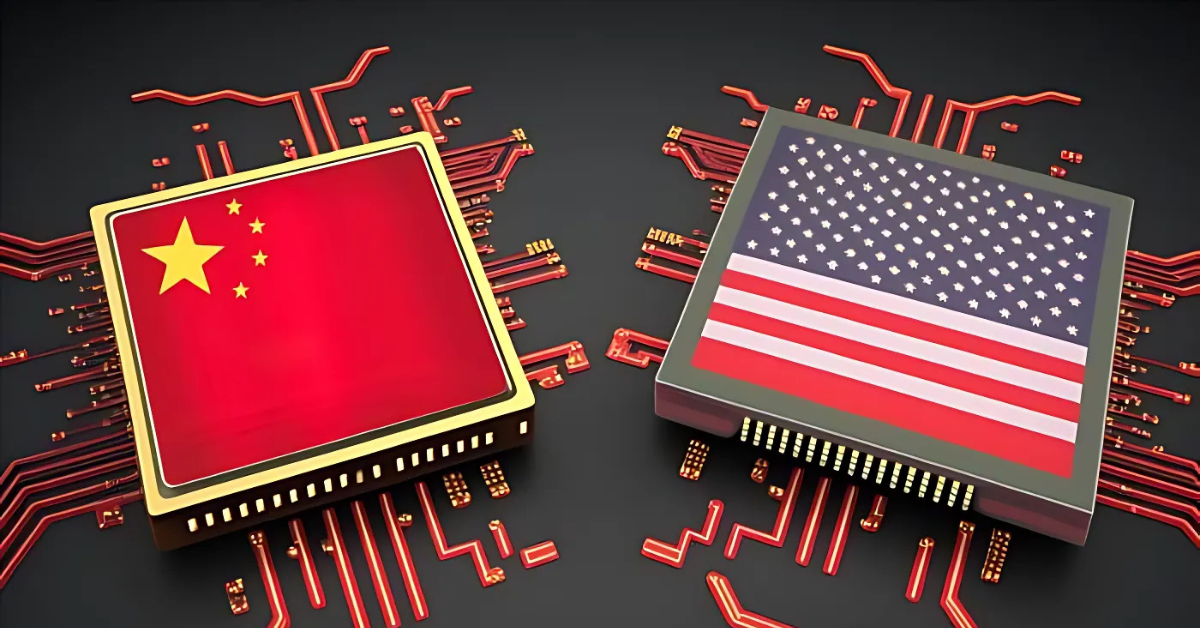Today’s News
Chinese industrial associations have issued a strong warning to domestic companies, advising them to exercise caution when purchasing U.S. chips due to escalating trade tensions and recent export controls imposed by the United States.

Image Source: News.AZ
Opposition to U.S. Export Controls
On December 3, four of China’s leading industry groups— the China Semiconductor Industry Association (CSIA), the China Association of Automobile Manufacturers (CAAM), the Internet Society of China (ISC), and the China Association of Communication Enterprises (CACE)— collectively voiced strong opposition to the U.S. export restrictions on semiconductor products.
These groups argued that the U.S. actions have disrupted supply chains, raised operating costs, and ultimately rendered American chips “no longer secure or reliable.”
The CSIA stated, “The U.S. arbitrary control measures against China have caused disruptions in the supply chain and increased operating costs for American companies, affecting the stable supply of U.S. chips.” They further emphasized, “As a result, related Chinese industries have to exercise caution when procuring chips from the United States.”
Impact on China’s Automotive and Tech Sectors
The CAAM added to the concerns, specifically pointing out that the trust in U.S. chips is being increasingly shaken within China’s automotive industry. The association welcomed greater collaboration between global chipmakers and Chinese companies, urging joint research, investment in China, and the sharing of development opportunities.
The CACE, another key industry group, called on the Chinese government to investigate the security of the country’s critical information infrastructure and ensure measures are in place to protect its stability. The ISC, which represents China’s internet sector, recommended that domestic firms expand their partnerships with chipmakers from countries outside the U.S. and increase the use of both domestic and foreign-produced chips within China.
U.S. Response: Denial of Claims and Escalation
In response to these warnings, the Semiconductor Industry Association (SIA), a U.S. trade group, rejected claims that American chips are unsafe or unreliable. They called the coordinated actions in China to limit U.S. chip procurement “unhelpful” and asserted, “Any claims that American chips are ‘no longer safe or reliable’ are simply inaccurate.”
The SIA maintained that export controls should be narrow and specific to national security concerns, urging both the U.S. and China to avoid further escalation in their trade war.
Broader Implications: Retaliatory Measures and Trade War Escalation
This growing dispute follows the U.S.’s latest crackdown on China’s semiconductor industry, which has expanded export restrictions to 140 Chinese companies, including major chip equipment maker Naura Technology Group. These actions are part of a broader U.S. strategy to limit China’s access to critical technology.
Meanwhile, China has retaliated by banning the export of rare minerals crucial for military applications, solar cells, and other manufacturing processes. A White House spokesperson confirmed that the U.S. would take necessary steps to counter China’s actions and continue efforts to diversify supply chains away from Chinese sources.
Expert Insights: Escalating Tensions and Uncertain Market Responses
Tom Nunlist, associate director at the consultancy Trivium China, explained that while the warnings from Chinese industry groups could influence business decisions, market reactions will ultimately depend on companies’ needs. “China had been moving quite slowly or carefully in terms of retaliating against moves by the United States, but it seems pretty clear that now the gloves are off,” he stated.
The ongoing tensions between the U.S. and China have reached new heights, with both nations targeting each other’s key industries in a continuing tit-for-tat conflict. The trade war shows little sign of easing as both governments take increasingly aggressive actions to safeguard their respective industries.
Ongoing Trade War Impact
As both nations tighten their grip on critical industries, the global semiconductor market faces significant disruption. With the U.S. and China each pushing back with sanctions and retaliatory measures, the long-term impact of the trade war on global supply chains and technological development remains uncertain.
Other News
Australia’s Q3 GDP Growth Misses Expectations
Australia’s economy grew at its slowest annual pace since the pandemic, with Q3 GDP rising only 0.3%, missing forecasts. The disappointing data led to a dip in the Australian dollar.
BlackRock to Acquire HPS for USD 12 Billion
BlackRock has agreed to acquire private credit firm HPS Investment Partners for USD 12 billion in an all-stock deal. This acquisition strengthens BlackRock’s presence in the growing private credit market.
U.S. Job Openings Rise, Layoffs Fall
U.S. job openings increased to 7.744 million in October, while layoffs dropped significantly. Despite slower hiring, the labor market remains resilient with rising worker confidence.
Risk Disclosure:
Securities, Futures, CFDs and other financial products involve high risks due to the fluctuation in the value and prices of the underlying financial instruments. Due to the adverse and unpredictable market movements, large losses exceeding your initial investment could incur within a short period of time.
Please make sure you fully understand the risks of trading with the respective financial instrument before engaging in any transactions with us. You should seek independent professional advice if you do not understand the risks explained herein.
Disclaimer:
This information contained in this blog is for general reference only and is not intended as investment advice, a recommendation, an offer, or an invitation to buy or sell any financial instruments. It does not consider any specific recipient’s investment objectives or financial situation. Past performance references are not reliable indicators of future performance. Doo Prime and its affiliates make no representations or warranties about the accuracy or completeness of this information and accept no liability for any losses or damages resulting from its use or from any investments made based on it.
The above strategies reflect only the analysts’ opinions and are for reference only. They should not be used or considered as the basis for any trading decisions or as an invitation to engage in any transaction. Doo Prime does not guarantee the accuracy or completeness of this report and assumes no responsibility for any losses resulting from the use of this report. Do not rely on this report to replace your independent judgment. The market is risky, and investments should be made with caution.



